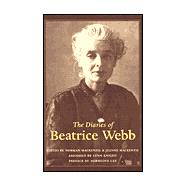| Preface | vii | ||||
| Family Tree: The Potter Sisters and their Children | x | ||||
| Introduction by Norman and Jeanne MacKenzie | xiii | ||||
|
1 | (26) | |||
|
27 | (37) | |||
|
64 | (33) | |||
|
97 | (36) | |||
|
133 | (34) | |||
|
167 | (57) | |||
|
224 | (33) | |||
|
257 | (35) | |||
|
292 | (35) | |||
|
327 | (22) | |||
|
349 | (37) | |||
|
386 | (37) | |||
|
423 | (52) | |||
|
475 | (31) | |||
|
506 | (46) | |||
|
552 | (57) | |||
| Chronology | 609 | (8) | |||
| List of Illustrations | 617 | (2) | |||
| Index | 619 |









